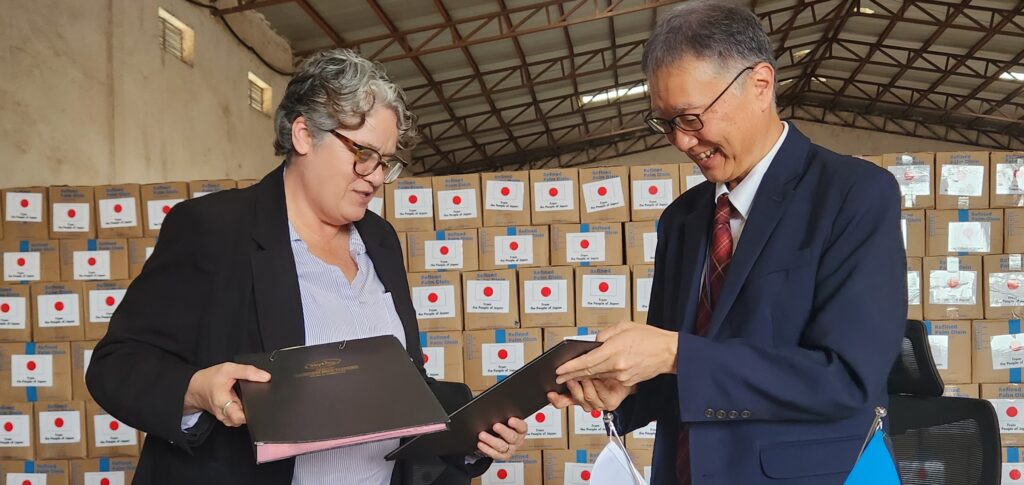The Japanese Government on Wednesday signed US$3.2 million support through the WFP to provide life-saving food assistance and school meals across South Sudan.
Speaking during the ceremony in Juba, the Japanese Embassy Chargés d’Affaires, Oyama Hiromoto, said the funding will provide life-saving food at this critical time.
“Immediate attention and actions are needed as the humanitarian situation in South Sudan is worsening. This year, an estimated 9.3 million people, nearly 70 percent of the population, require humanitarian support,” Hiromoto said
“Over 7.7 million people are projected to face acute food shortage or insecurity during the pandemic. It includes 2.5 million people in emergency conditions and over 60,000 people in famine-like conditions. Malnutrition is worsening, with over 3 million children and mothers in need of urgent care,” he added.
The diplomat said the armed clash and subnational conflict continue, while flooding, rising food prices, and economic shocks threaten the lives of the people and on July 7, WFP resumed emergency air drops in Nasir and Ulam counties in Upper Nile, reaching over 40,000 people.
He said the the operation was a critical response to the famine risks facing these communities. However, without an additional funding, WFP will have to reduce its assistance from August. It will put 2.3 million people at serious risk during the most critical time.
WFP Country Director Mary-Ellen McGroarty said the contribution raises the total from Japan to over US$40 million, which is huge since 2020.
She said the funding will allow WFP to provide school meals to over 42,000 children, and will immensely contribute to their education.
“You know, education, and school meals, and getting children in school is a game changer for any country. So, the fact that we are able to continue with the school meals is really close to my heart. These contributions come when the situation is difficult in South Sudan,” she said.
McGroarty said the latest IPC confirmed that over 7.7 million people were acutely food insecure, which puts South Sudanese severely food insecure.
“That means they can’t guarantee a meal a day on the table for their family. There are others that can barely do it for two days in a row, and what we call an IPC-4, and then sadly, in some parts where you have very difficult conflict, people are just at very high risk of famine. So, our efforts are really focused on what these kind of contributions, throughout the lean season and over the next months, of trying to pull people back from that brink of hunger that we see,” she said
“In addition to food insecurity and hunger, we’re seeing over 2.3 million children at the risk of malnutrition, and we all know that once a child gets malnourished, it follows them for life, so it’s critical that we pull that malnutrition back.”




